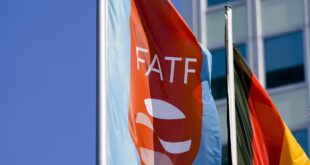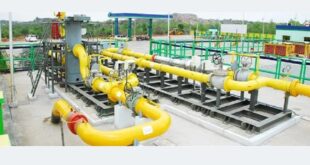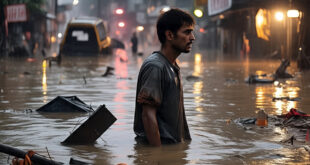- Recently, the Offshore Patrol Vessel (OPV) Sajag got commissioned into the Indian Coast Guard (ICG).
- It is third out of five OPV indigenously designed and built by the Goa Shipyard Limited. It is built under the Make in India policy.
- Other four OPVs are Indian Coast Guard Ship (ICGS) Saksham, ICGS Sachet, ICGS Sujeet, and ICGS Sarthak.
- It is fitted with advanced technology equipment, weapons and sensors capable of carrying a twin engine helicopter and four high speed boats.
- OPVs are long-range surface ships capable of coastal and offshore patrolling, policing maritime zones, control & surveillance, anti-smuggling & anti-piracy operations with limited wartime roles.
- It will help to manage greater responsibilities in the years to come and will strengthen ICGs concurrent multiple operations’ capability towards ensuring safe, secure and clean seas as also responding promptly to maritime emergencies in neighbourhood.
Indian Coast Guard:
- It is an Armed Force, Search and Rescue and Maritime Law Enforcement agency under the Ministry of Defence.
- It has a wide range of task capabilities for both surface and air operations. It is one of the largest coast guards in the world.
- It was established on 18th August 1978 by the Coast Guard Act, 1978. It performs non-military functions.
- The concept of forming ICG came into being after the 1971 war the blueprint for a multidimensional Coast Guard was conceived by the visionary Rustamji Committee.
- The organization is headed by the Director General Indian Coast Guard (DGICG) exercising his overall command and superintendence from the Coast Guard Headquarters (CGHQ) located at New Delhi.
- It has jurisdiction over the territorial waters of India including contiguous zone and exclusive economic zone.
- Responsible for marine environment protection in maritime zones of India.
- Acts as a coordinating authority for responding to oil spills in Indian waters.
- Protects India’s maritime interests and enforces its maritime law.
SOURCE: THE HINDU,THE ECONOMIC TIMES,MINT
 Chinmaya IAS Academy – Current Affairs Chinmaya IAS Academy – Current Affairs
Chinmaya IAS Academy – Current Affairs Chinmaya IAS Academy – Current Affairs



